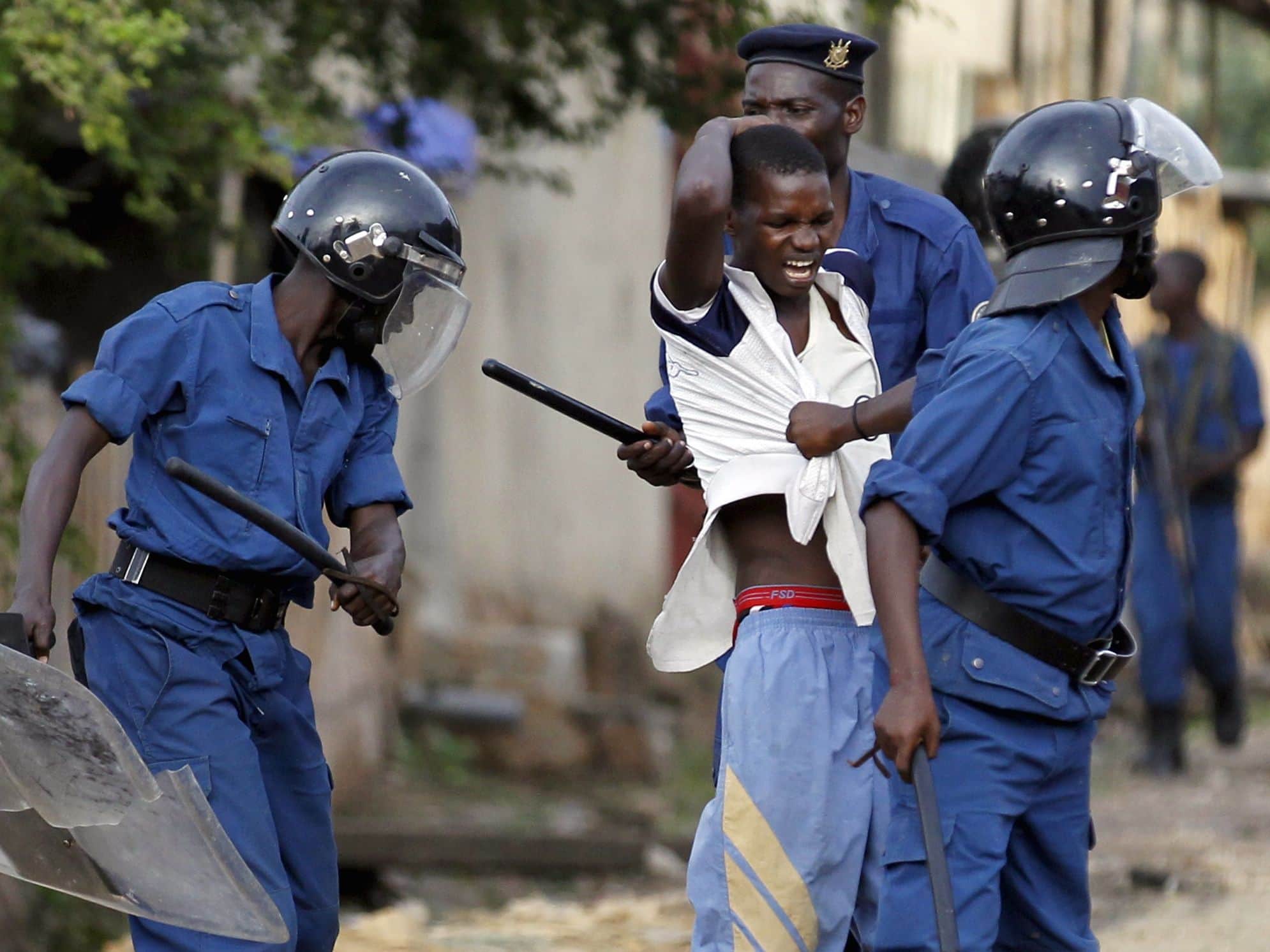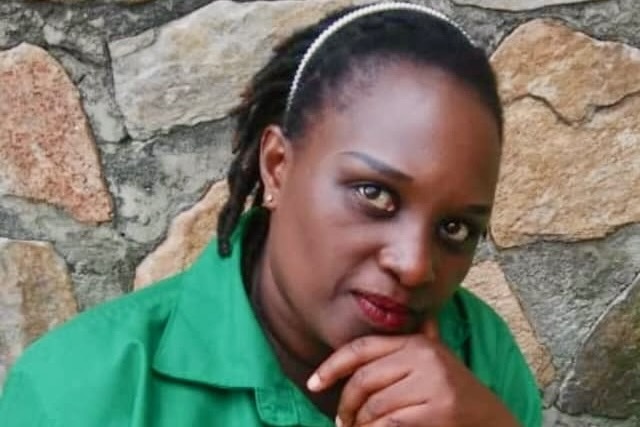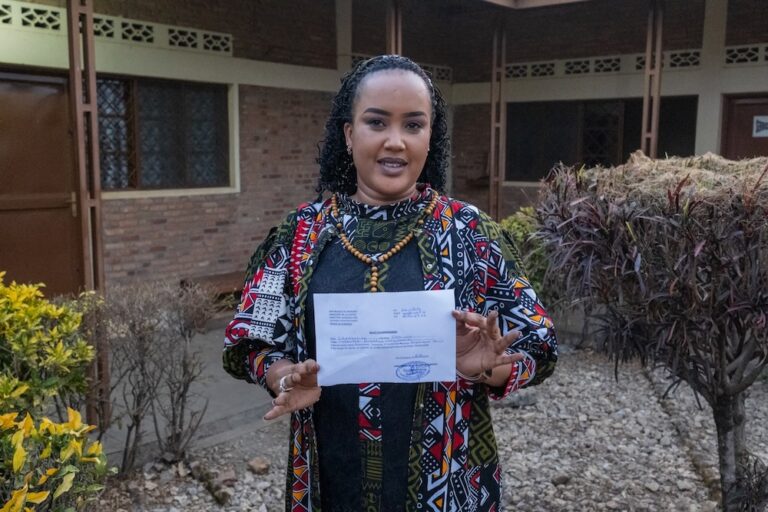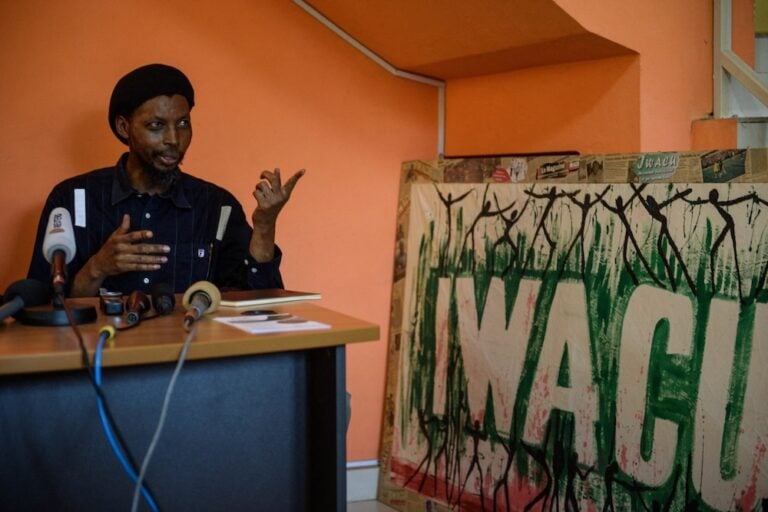Journalists are being harassed and radio stations prevented from broadcasting in an attempt to contain protests. The demonstrations have occured in the wake of a recent announcement that President Pierre Nkurunziza will run for a third term.
This statement was originally published on rsf.org on 27 April 2015.
Journalists are being harassed and radio stations prevented from broadcasting as the authorities clamp down on the media in an attempt to contain protests in the wake of Saturday’s announcement that President Pierre Nkurunziza is to run for a third term.
The protests continued today after at least two people were killed in the clashes that erupted yesterday in the capital, Bujumbura.
According to the latest information available, Radio Publique Africaine (RPA), Burundi’s most popular privately-owned radio station, was closed today. “Let them close the radio station as long as they don’t kill anyone and don’t steal our equipment,” the station’s director, Bob Rugurika, said.
Yesterday morning, RPA was forced to suspend live coverage of the protests when three government ministers and police officers arrived with search and arrest warrants.
They accused RPA of inciting an uprising by providing live coverage of the protests and threatened to close the station. Interior minister Edouard Nduwimana said he and his colleagues had not come to close the station, just to dialogue, Radio France Internationale reported.
This morning the police raided the Maison de la Presse (Press Club) in Bujumbura and forced the Media Synergy Studio to stop broadcasting. The Media Synergy Studio is an alliance under which five radio stations – RPA, Bonesha FM, Isanganiro, CCIB FM+ and Radio Télevision Renaissance – are cooperating in their coverage of elections and other subjects.
“Five radio stations were in the process of broadcasting in synergy from the Burundian Association of Radio Broadcasters when the police arrived, roughed up journalists and closed down the studio and the Press Club,” Bonesha FM director Patrick Nduwimana told Reporters Without Borders.
During the raid, the police tried to arrest the president of the Burundian Association of Journalists (UBJ), Alexandre Niyungeko. They also roughed up and briefly detained Pierre Claver Mbonimpa, the well-known president of the Association for the Protection of Human Rights and Detainees (APRODH), who had arrived for an interview.
“We condemn the Burundian government’s arbitrary and violent behaviour towards journalists and media outlets,” said Cléa Kahn-Sriber, the head of the Reporters Without Borders Africa desk.
“The president and his party are openly displaying a desire to silence the media by all means possible. By gagging radio stations, President Nkurunziza is confirming the suspicions of his detractors, who accuse him of despotic tendencies and of planning to block a democratic outcome to the upcoming legislative and presidential elections.”
So far the United States is the only country to have voiced concern about what has happened to RPA and other independent radio stations.
Kahn-Sriber added: “We urge the international community to react quickly and firmly to these draconian attacks on media freedom. With elections due in many other African countries, turning a blind eye to President Nkurunziza’s behaviour would give a green light to all the other governments that might be tempted to suppress the free expression of their peoples.”
Yesterday, the authorities disconnected the relay transmitters of Burundi’s three leading independent radio stations – RPA, Bonesha FM and Isanganiro – thereby prevented their broadcasts from reaching the rest of the country. Their phone lines were also disconnected.
According to the Media Synergy alliance, the ruling CNDD-FDD party circulated a propaganda paper in February that called for the destruction of the “teachings of the government’s enemies” and included opposition parties, civil society actors and journalists with Bonesha FM, RPA, Isanganiro and Radio Télévision Renaissance among the “government’s enemies.”
Burundi is ranked 145th out of 180 countries in the 2015 Reporters Without Borders press freedom index.



